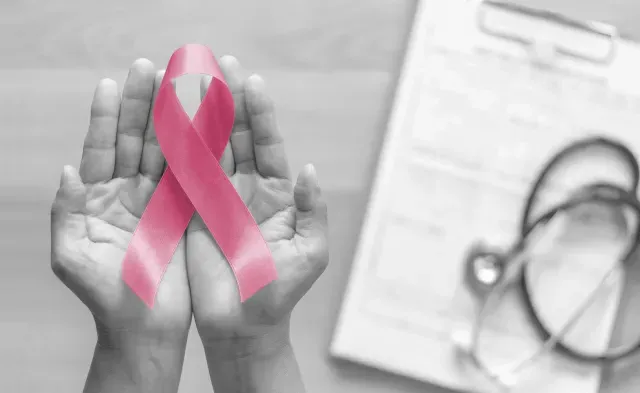Latest
Optimizing the Opportunities of the Clinical Experience
Jun 25, 2024

As a student of the 21st century, you know that technology is changing everything, from what we learn to how we learn it. The demand for compassionate, quality patient care is needed now, more than ever. During your clinical rotations, you can bring classroom lessons into real-world situations, preparing yourself to serve patients in hospitals and healthcare facilities without a safety net. That’s why your clinicals are crucial to your long-term career success.
The Benefits of Clinical Experiences
For many nursing students, the prospect of clinical experiences can feel overwhelming. They juggle coursework, clinical rotations, possible full-time jobs and family responsibilities. Clinicals are more than just another bullet point for a job application—they can be deeply rewarding and enriching, not to mention a chance to learn and gain confidence.
These are the experiences that will help to:
- Develop Compassion and Empathy. Some lessons can’t be taught in a classroom. By interacting directly with patients, students see firsthand how important the human component of medicine can be. They can witness the struggles and triumphs and gain a greater emotional connection to the patient care they’ll spend a lifetime delivering.
- Understand the Realities of Patient Care. Lessons from textbooks and lectures only go so far. Clinical experiences immerse students in the day-to-day unpredictability and excitement of healthcare. They must learn to handle multiple issues at once, deal with the emotional toll of patient care, and work within a team setting. Having this real-world practice can prepare them to hit the ground running after graduation.
- Build Critical Skills. Clinical rotations are where students hone their practical skills so that when it matters in a medical scenario, they are confident they can do the job. Whether it’s taking patient histories, performing physical exams or developing treatment plans, clinicals are where students can learn the hands-on human skills of communication, teamwork and problem-solving to mesh with the knowledge and training they’ve been taught.
- Gain Perspective and Insight. When students observe various specialties and scenarios, they learn how to interact with professionals from across a range of disciplines. This will help any future professional make informed decisions about their career paths and consider the impact they can have on the lives of patients. This can be critical in shaping a student’s professional identity and ensuring that they practice with integrity and respect.
Get the Most Out of Clinical Rotations
Starting clinicals can be a daunting task. Preparation, positivity, and an open-minded perspective can be the foundation students need to make the most out of the time they have in the classroom and real-world situations. Here are some other things to consider as you get started:
- Find a clinical opportunity that best suits your goals. Because clinicals are such an important aspect of nursing school, look for a placement that supports both your professional aspirations and your personal preferences. A clinical placement for MSN and PMC students can be the deciding factor of your nursing school experience, so be sure to begin your search early, make contact with opportunities that interest you and reach out for support and resources from Herzing’s clinical placement team.
- Make friends with your cohort. Everyone who is going through clinicals faces some of the same demands and challenges that you will experience. With proper support and motivation, you can help each other get through the tough days and celebrate the rewarding ones. As one former student advises, “Don’t be the lone wolf.”
- Be proactive. A clinical experience is as impactful as you make it. This means that you should look to ask questions, reflect on goals and outcomes, ask for feedback and seek out new challenges and opportunities. You have invested the time, energy and money that what follows should be an experience that sets you up for success in a career you love—use your clinicals to help sharpen your focus and achieve those goals.
Like every other part of their education, Herzing students do not walk alone on their path to a nursing career. We believe working together makes everyone better. Remember that, as part of the Clinical Placement Pledge, MSN and PMC students are provided the opportunity to locate their preceptors and clinical sites, with help and support from the clinical coordination team.
To learn more about clinical experiences and the clinical placement pledge check out Herzing’s School of Nursing for more information about accredited programs, relevant blog posts about nursing and healthcare and other available resources.
Learn More About Our Nursing Programs
Bureau of Labor Statistics (BLS), U.S. Department of Labor, Occupational Employment and Wage Statistics 2023 / Occupational Outlook Handbook 2022. BLS estimates do not represent entry-level wages and/or salaries. Multiple factors, including prior experience, age, geography market in which you want to work and degree field, will affect career outcomes and earnings. Herzing neither represents that its graduates will earn the average salaries calculated by BLS for a particular job nor guarantees that graduation from its program will result in a job, promotion, salary increase or other career growth.
Latest
Recent Blog Posts
Subscribe to our Newsletter
Get the latest news you need to know, from study hacks to interview tips to career advancement. Have it delivered right to your inbox biweekly.








